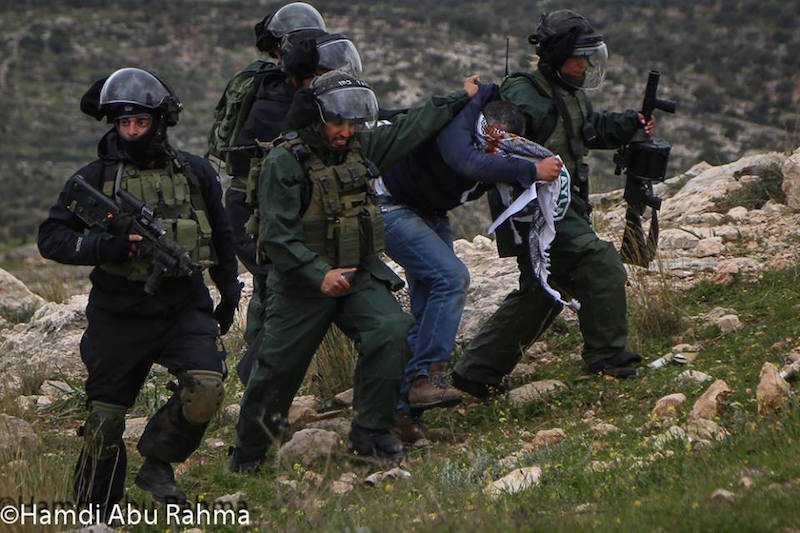Tag: Abdallah Abu Rahmah
-
Protest commemorating one year anniversary of the killing of Mohammad Abu Khdeir met with military violence
2 July 2015, in honor of the first anniversary of the murder of Muhammad Abu Khdeir, Palestinian activists with international supporters blocked a settlers-only road leading to the illegal Adam settlement. Demonstrators cited this road as the road that the murderers took in their search for a Palestinian victim. Journalists, Palestinian and international activists, suffered…
-
A decade of civil disobedience in my West Bank village
2nd March | Abdallah Abu Rahma – originally posted on Haaretz | Bil’in, Occupied Palestine On February 20, 2005, we, residents of the West Bank Palestinian village of Bil’in, set forth, accompanied by supporters from around the world, and marched to the west side of the village. Israeli army bulldozers had begun uprooting olive trees there and wiping out the place…
-
Demonstration in Bil’in honoring slain US citizens faces attacks and arrests by Israeli forces
17 February 2015 | International Solidarity Movement, Ramallah team | Bil’in, Occupied Palestine On Friday 13th February, Israeli forces assaulted the demonstration in Bil’in with hundreds of tear gas rounds, dozens of stun grenades and pepper spray, injuring eleven Palestinian, Israeli and international demonstrators. Member of the Bil’in popular committee Mohammed Khatib and a UK citizen and solidarity…



